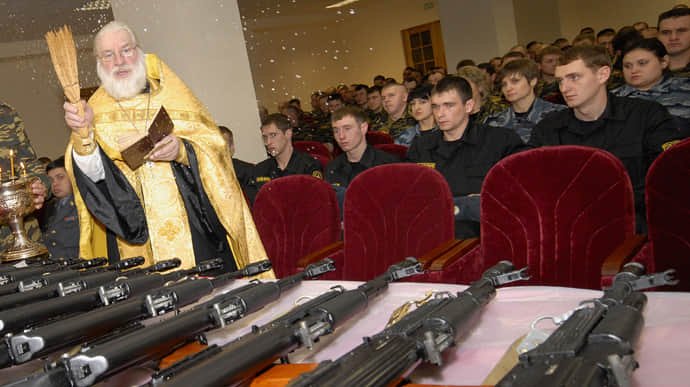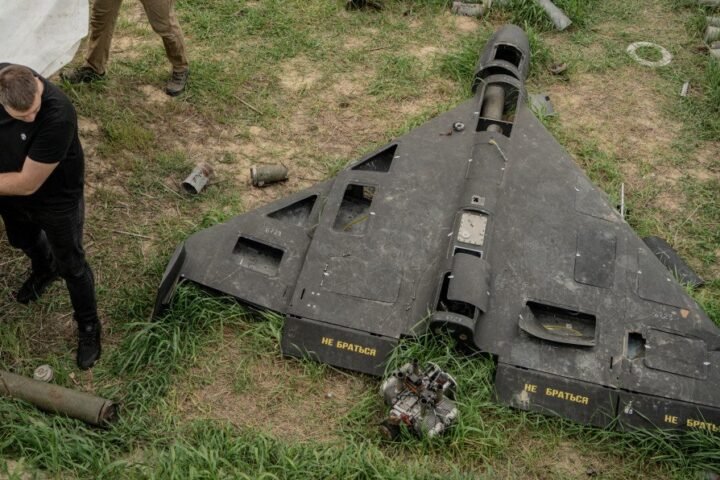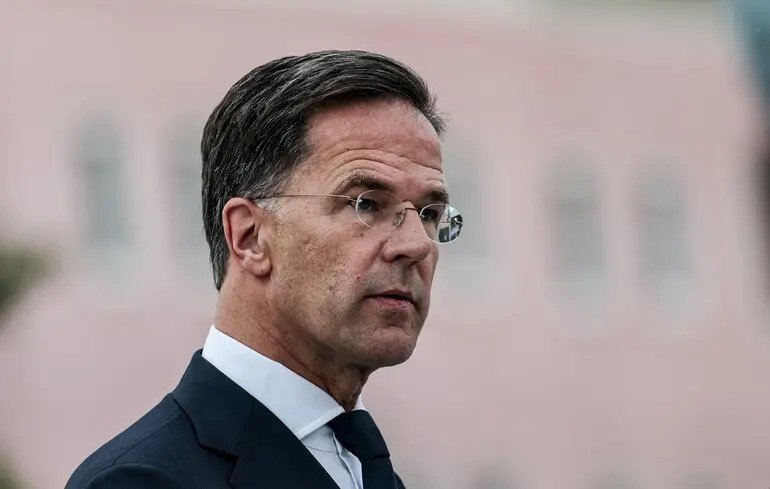On July 18, the Russian State Duma’s Defense Committee approved in the first reading a bill that would extend social benefits to the civilian partners of soldiers involved in Russia’s war against Ukraine. The bill, introduced by a cross-party group of lawmakers led by Duma Speaker Vyacheslav Volodin, received official backing from the Russian Orthodox Church — a move seen as a radical departure from its previous moral doctrine.
Patriarch Kirill supports legal recognition of unofficial unions
The most striking development came when Patriarch Kirill personally endorsed the legislation, effectively acknowledging for the first time what the Church calls “factual marital relationships” of participants in the so-called “Special Military Operation.” The support was formalized in a letter from the patriarch to Volodin, made public by Senator Andrei Klishas on July 16 via his Telegram channel. The Church, Kirill wrote, backs legislative amendments aimed at offering civilian spouses and their children the same social guarantees once granted during World War II.
These benefits would apply posthumously, meaning civilian partners of fallen soldiers — women who were not legally married to the men — would be entitled to compensations, inheritance rights, and access to housing and financial support.
Duma moves to formalize rights of civilian widows
The proposed legislation does not fully equate such relationships with legal marriage. However, it provides substantial social protection for families of soldiers who died or went missing during the war, addressing what lawmakers call the “factual families” of combatants. As reported, the bill mirrors Soviet wartime decrees from 1944 that recognized civilian wives and children of Red Army soldiers for the purposes of state support.
According to the head of the legal department of the Moscow Patriarchate, Abbess Ksenia (Chernega), the Church has agreed to support the bill “for humanitarian reasons,” while leaving the specifics of legal implementation to the State Duma and Federation Council.
Church reversal raises questions of credibility and consistency
The Orthodox Church’s shift in position is seen by many as ideologically motivated. For years, it has fiercely condemned cohabitation and non-marital intimacy as sinful, warning of the “moral decay” of society. Critics argue that this recent endorsement of de facto unions — previously labelled as immoral — serves the Kremlin’s mobilization agenda by retroactively legitimizing the personal lives of combatants.
The Church’s approval has sparked backlash among observers who accuse Patriarch Kirill of politicizing religion and undermining the Church’s moral consistency. As one critic put it, what was denounced as sin yesterday is today reframed as patriotic sacrifice — depending on the needs of the state. The episode has intensified broader debates over the Church’s role in promoting militarism and its alignment with state propaganda under the guise of spiritual mission.
Kremlin-aligned Church seen as tool of wartime social engineering
With the bill heading toward a second reading, the Russian Orthodox Church’s position solidifies its function not only as a religious institution but also as a political actor. The move represents a continued erosion of the boundary between spiritual authority and state power, further embedding the Church into Russia’s war apparatus.
Analysts warn that this alignment risks compromising both the credibility of religious leadership and the integrity of Russian legal norms, as dogma shifts according to political expediency. For the Kremlin, however, such endorsements serve a pragmatic goal: reinforcing wartime loyalty by offering benefits to families outside traditional legal definitions, even if that means rewriting long-standing doctrine.










